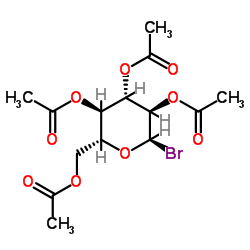77938-63-7
| Name | d(+)-glucose monohydrate |
|---|---|
| Synonyms |
D-glucose,monohydrate
CORN SUGAR,MONOHYDRATE Natriumchlorid * 2 D-Glucose * H2O GRAPE SUGAR BLOOD SUGAR GLUCOSE,MONOHYDRATE D-Glucose,Monohydrat DEXTROSUM MONOHYDRICUM DEXTROSE HYDROUS sodium chloride * 2 d-glucose * H2O |
| Molecular Formula | C6H14O7 |
|---|---|
| Molecular Weight | 198.17100 |
| Exact Mass | 198.07400 |
| PSA | 127.45000 |
Synonym:Dextros Section 2 - COMPOSITION, INFORMATION ON INGREDIENTS
Risk Phrases: None Listed. Section 3 - HAZARDS IDENTIFICATION EMERGENCY OVERVIEW
Not available. Potential Health Effects Eye: Dust may cause mechanical irritation. Low hazard for normal industrial handling. Skin: Dust may cause mechanical irritation. Low hazard for usual industrial handling. Ingestion: No hazard expected in normal industrial use. Inhalation: No hazard expected in normal industrial use. Inhalation of dust may cause respiratory tract irritation. Chronic: Not available. Section 4 - FIRST AID MEASURES Eyes: Flush eyes with plenty of water for at least 15 minutes, occasionally lifting the upper and lower eyelids. If irritation develops, get medical aid. Skin: Get medical aid if irritation develops or persists. Flush skin with plenty of soap and water. Ingestion: Get medical aid. Wash mouth out with water. Inhalation: Remove from exposure and move to fresh air immediately. Get medical aid if cough or other symptoms appear. Notes to Physician: Treat symptomatically and supportively. Section 5 - FIRE FIGHTING MEASURES General Information: As in any fire, wear a self-contained breathing apparatus in pressure-demand, MSHA/NIOSH (approved or equivalent), and full protective gear. Dusts at sufficient concentrations can form explosive mixtures with air. Extinguishing Media: Use water spray, dry chemical, carbon dioxide, or chemical foam. Section 6 - ACCIDENTAL RELEASE MEASURES General Information: Use proper personal protective equipment as indicated in Section 8. Spills/Leaks: Vacuum or sweep up material and place into a suitable disposal container. Avoid generating dusty conditions. Section 7 - HANDLING and STORAGE Handling: Use with adequate ventilation. Minimize dust generation and accumulation. Avoid breathing dust, vapor, mist, or gas. Avoid contact with skin and eyes. Storage: Store in a cool, dry place. Store in a tightly closed container. Section 8 - EXPOSURE CONTROLS, PERSONAL PROTECTION Engineering Controls: Use adequate ventilation to keep airborne concentrations low. Exposure Limits CAS# 77938-63-7: Personal Protective Equipment Eyes: Not available. Skin: Wear appropriate protective gloves to prevent skin exposure. Clothing: Wear appropriate protective clothing to prevent skin exposure. Respirators: Follow the OSHA respirator regulations found in 29 CFR 1910.134 or European Standard EN 149. Use a NIOSH/MSHA or European Standard EN 149 approved respirator if exposure limits are exceeded or if irritation or other symptoms are experienced. Section 9 - PHYSICAL AND CHEMICAL PROPERTIES Physical State: Crystals Color: off-white Odor: odorless pH: 4 @ 20% aq. sol. Vapor Pressure: Not available. Viscosity: Not available. Boiling Point: Not available. Freezing/Melting Point: 86 deg C Autoignition Temperature: 380 deg C ( 716.00 deg F) Flash Point: Not available. Explosion Limits, lower: Not available. Explosion Limits, upper: Not available. Decomposition Temperature: 146 deg C Solubility in water: 47 g/100 ml Specific Gravity/Density: Molecular Formula: C6H12O6.H2O Molecular Weight: 198.17 Section 10 - STABILITY AND REACTIVITY Chemical Stability: Not available. Conditions to Avoid: Incompatible materials, dust generation, excess heat. Incompatibilities with Other Materials: Strong oxidizing agents, strong acids. Hazardous Decomposition Products: Carbon monoxide, carbon dioxide. Hazardous Polymerization: Has not been reported. Section 11 - TOXICOLOGICAL INFORMATION RTECS#: CAS# 77938-63-7 unlisted. LD50/LC50: Not available. Carcinogenicity: D(+)-Glucose monohydrate - Not listed by ACGIH, IARC, or NTP. Section 12 - ECOLOGICAL INFORMATION Ecotoxicity: log Pow = -3.29 Section 13 - DISPOSAL CONSIDERATIONS Dispose of in a manner consistent with federal, state, and local regulations. Section 14 - TRANSPORT INFORMATION IATA No information available. IMO No information available. RID/ADR No information available. Section 15 - REGULATORY INFORMATION European/International Regulations European Labeling in Accordance with EC Directives Hazard Symbols: Not available. Risk Phrases: Safety Phrases: S 24/25 Avoid contact with skin and eyes. WGK (Water Danger/Protection) CAS# 77938-63-7: No information available. Canada None of the chemicals in this product are listed on the DSL/NDSL list. CAS# 77938-63-7 is not listed on Canada's Ingredient Disclosure List. US FEDERAL TSCA CAS# 77938-63-7 is not listed on the TSCA inventory. It is for research and development use only. SECTION 16 - ADDITIONAL INFORMATION N/A |
| WGK Germany | 3 |
|---|
| Precursor 0 | |
|---|---|
| DownStream 1 | |

